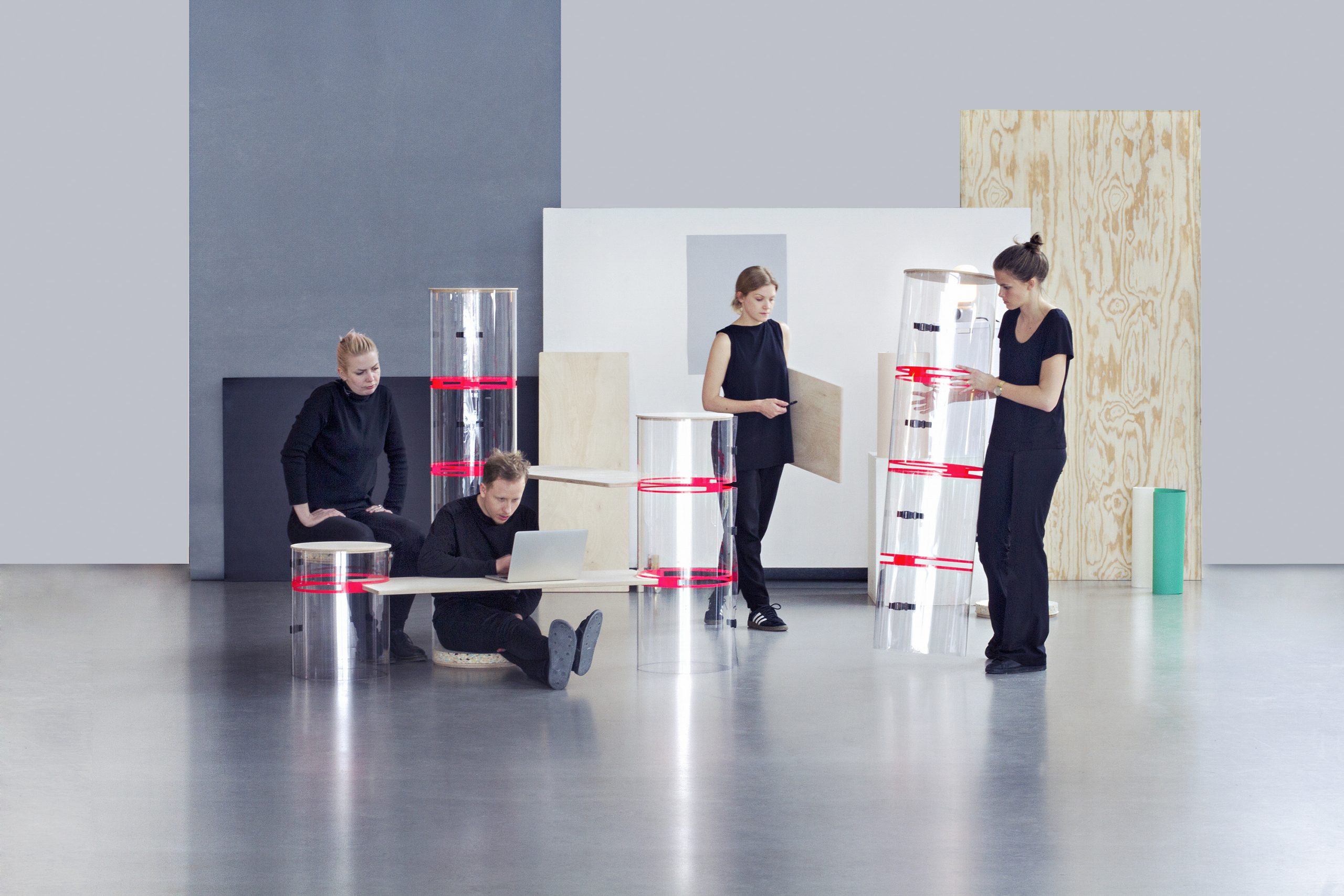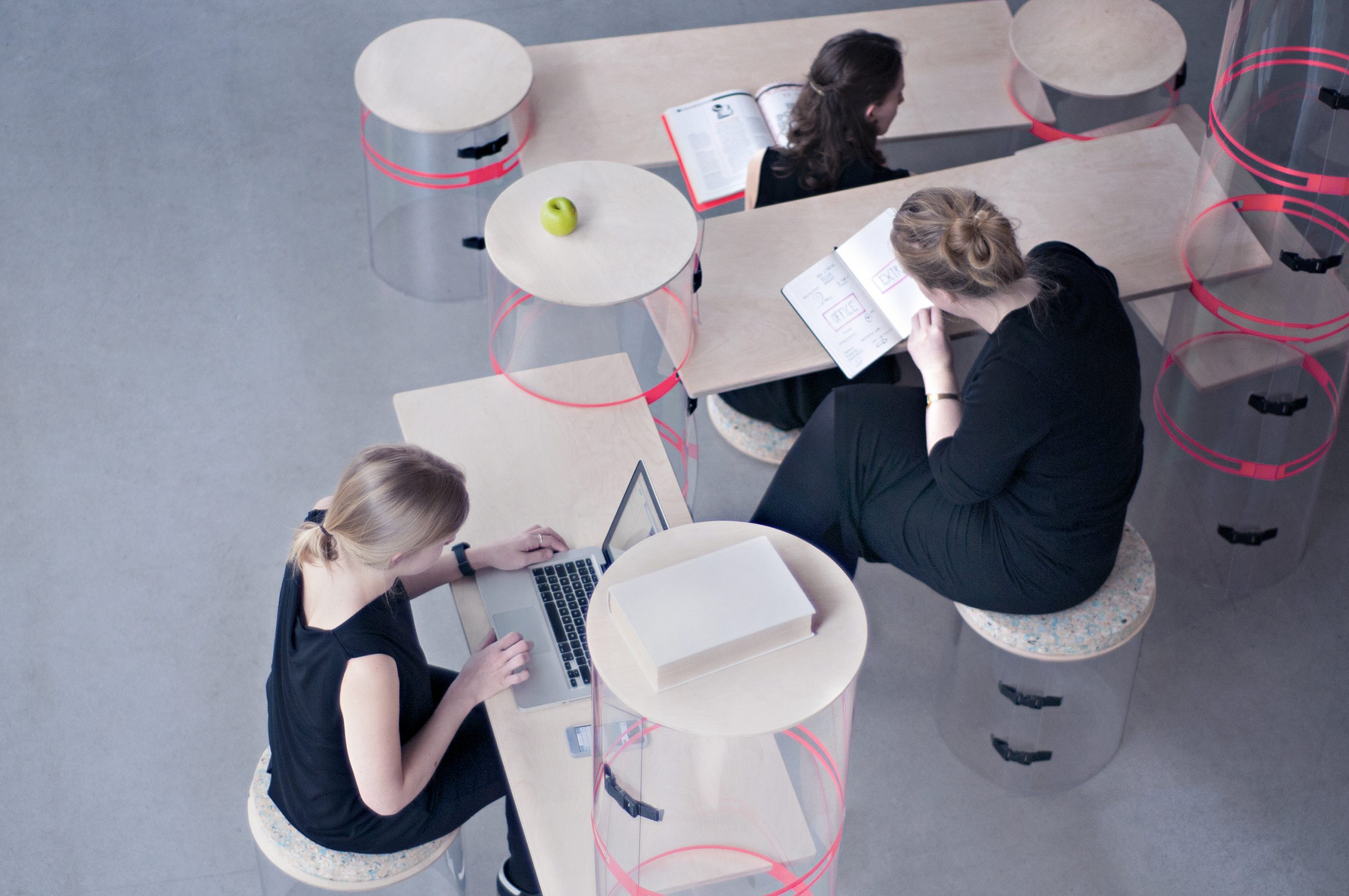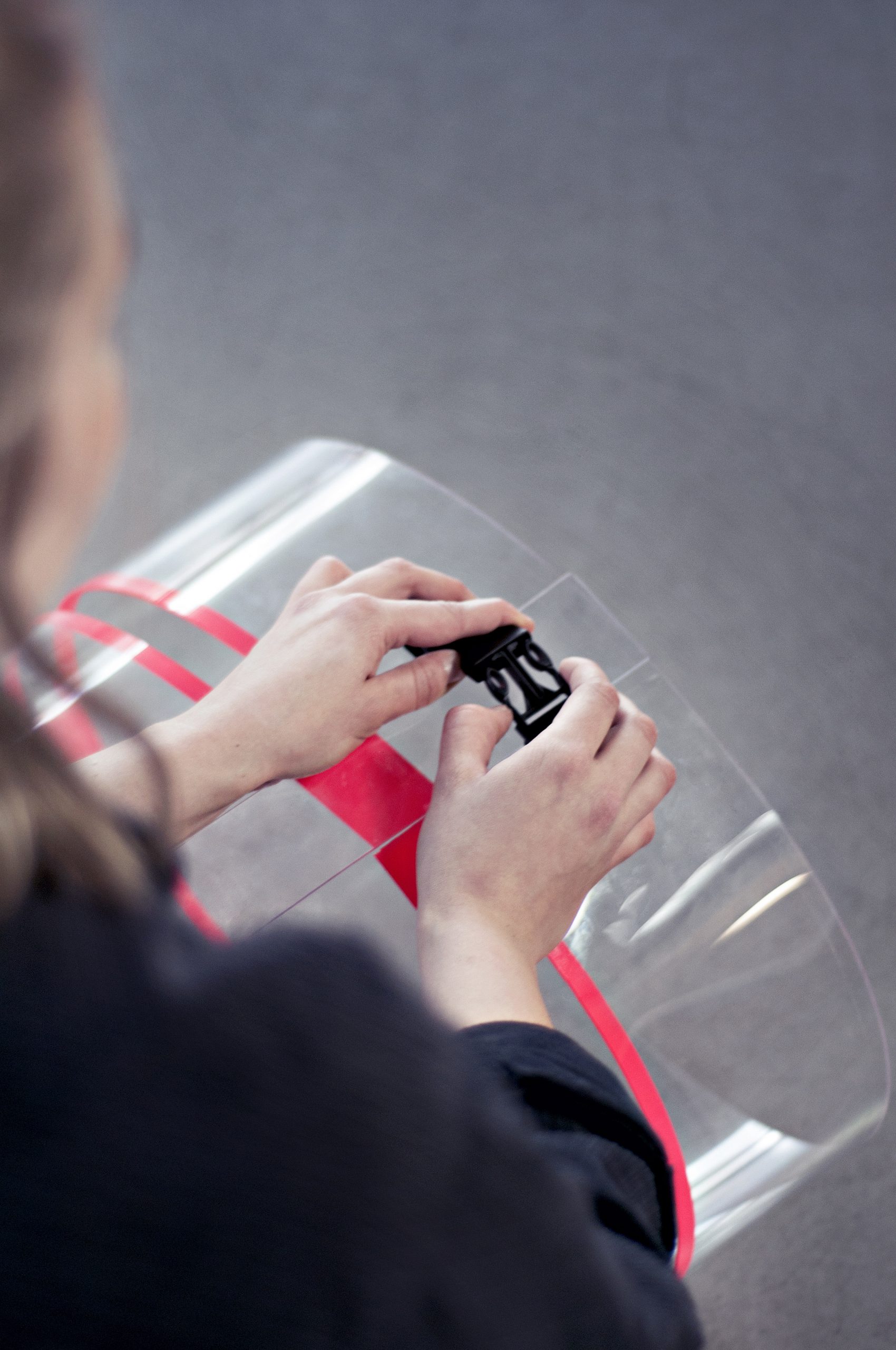Workaround

Useful information
- Team members
- Sofie Aschan
- Country
- Sweden
- Keywords
- collaboration flatpack simplicity office-furniture transparency personal preference interaction joyful sharing-economy
Short Description
Pop-up furniture landscape, transforming along with different activities and needs within an office.
Detailed Description
In a project supervised by Stefan Diez and Rolf Hay called IN OUR OFFICE each project were on the topic of small scale offices to provide new ideas on the topic. I was inspired by the start-up businesses creative working culture. These are small teams that experience fast-pace changes in the team set-up, from two to ten persons over a few weeks, and then back to two. Writing email one day and creative work and brainstorming the next.
The result is Workaround, a variable modular desk landscape that allows for working in various heights in a system that can be expanded or reduced as required depending on task at hand or team set-up. Using simple materials like plywood, recycled foam and PC-sheets, this system could potentially be locally produced in a maker-space around the corner using bandsaws and water/laser cutting. In storing and transportations it takes up barely no volume or weight, but when snapped together it forms a 3d-landscape with endless possibilities.
Project Details
- Does your design take social and cultural challenges and human wellbeing into consideration?
The design allows for new ways of furnishing todays office that is in constant need of new perspectives, furniture and different working surfaces depending on the task at hand. For small scale offices workforce need may change a lot over night it's hard to invest in static furniture systems. ??This system allows for new perspective, each time you come to the office.
- Does your design support sustainable production, embodying circular or regenerative design practices?
The product could be produced nearby and bought/rented out through local suppliers. The simple production methods of two-dimensional pieces in recyclable pc-plastics, plywood and recycled foam are in theory easy to adjust according to individual needs in terms of the properties and features of the system as well as possibility for local material usage. This would mean less transportation cost, less environmental impact through promoting a sharing economy. ?
- Does your design use principles of distribution and open source?
The product is as of now only in a functional prototype-stage and has not yet been distributed. This was not a main goal as I was developing the product, but something that I realised later. The materials I chose are simple and could be found in most part of the world, but it would make no sense to produce this in large amounts and sell it, especially since I know all parts will not be used at all times. There is definitely a great possibility in allowing this to be open source and used through a sharing business, and from my point of view it could easily be implemented since the data needed is basically 2d-drawings which can be tweaked, together with simple production methods. ?
- Does your design promote awareness of responsible design and consumption?
To consider this as not something that you don't buy as you usually would buy an interior furnishing for an office. Instead this could act as a rental-solution that creates flexibility and less owning and more sharing.
Images


